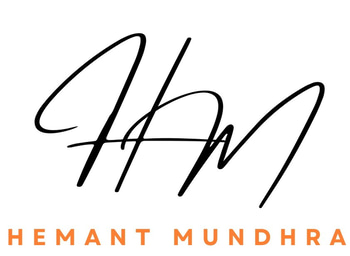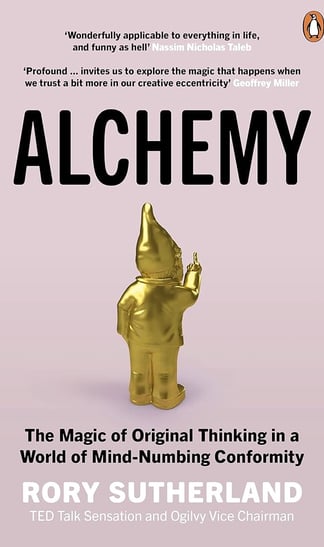

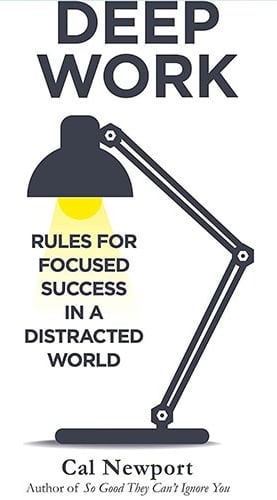

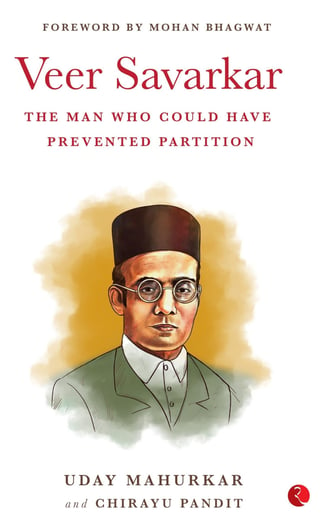

Influences: The People, Books, and Experiences That Shaped Me
Books have never been mere pages and words for me. They have been my silent guides, my thought provokers, and at times, my much-needed reality check. Some have reinforced what I already knew, others have shaken my core beliefs, and a select few have completely changed the way I view the world.
1. Alchemy – Rory Sutherland
💡 Embracing the Unpredictable, Finding Joy in the Unconventional
Reading Alchemy felt like a homecoming—finally, someone articulated what I had always sensed but never expressed. Logic doesn’t always drive the best decisions; sometimes, intuition, emotions, and spontaneity create the real magic.
Personally, this book freed me from the need for rigid, structured thinking. It taught me that sometimes, the best decisions come from gut feelings, a moment of madness, or even an idea that makes no sense at first.
🔹 Lesson Applied: I have learned to trust what feels right, even when it cannot be rationally explained.
2. Veer Savarkar: The Man Who Could Have Prevented Partition – Uday Mahurkar & Chirayu Pandit
💡 The Power of Vision, Strength in Solitude
History fascinates me, not just as a record of events but as a study of human nature, choices, and consequences. This book introduced me to the importance of standing firm in one’s beliefs, even when the world refuses to understand.
Veer Savarkar’s unwavering conviction resonated deeply with me. It made me question historical narratives, realize the strength that solitude can offer, and understand that not all battles are for the present—some are fought for the future.
🔹 Lesson Applied: A person’s legacy is shaped by their ability to think ahead of their time, even at the cost of being misunderstood.
3. Deep Work – Cal Newport
💡 Reclaiming Time, Reconnecting with Self
In a world that demands constant attention, Deep Work made me realize the true value of silence, focus, and solitude. It changed my relationship with time - shifting my mindset from being busy to being present.
Now, I carve out time for deep thought, uninterrupted work, and meaningful conversations. Whether in personal or professional life, I have embraced depth over distraction.
🔹 Lesson Applied: Protecting my time and energy is not a luxury—it is a necessity for living meaningfully.
Each of these books has left an imprint on my life. From Alchemy, I learned to embrace unpredictability. From Veer Savarkar, I realized the power of conviction. From Deep Work, I understood that depth—not speed—determines the richness of life.
Mentors Who Guided Me
Unlike many, I never had a single mentor who walked me through life. Instead, I followed the path of Eklavya, observing, learning, and shaping myself through silent guidance. I found wisdom in many places—some close, some distant, but all transformative.
Family Confidants:
My mother – The anchor of my life, the first person I confided in, and the one who shaped my earliest values.
Madhuri Mantri (‘Jiji’), my cousin sister – A voice of wisdom and stability.
My paternal uncle Gauri Shankar Mundhra (‘Kakaji’) – A guiding force in my formative years.
Thought Leaders Who Shaped My Thinking:
Osho Rajneesh – Taught me to look beyond the obvious, to embrace unconventional wisdom, and to question societal norms.
J. Sai Deepak – A modern intellectual whose insights on history, law, and civilization made me rethink the very foundation of narratives we accept.
Anand Ranganathan – A brilliant mind who reinforced my belief in rational thought, evidence-based reasoning, and intellectual courage.
🔹 Lesson Applied: I am who I am today because of these influences. Without them, I might have lost myself, succumbed to despair, or become a shadow of what I could be.
Experiences That Changed Me
Beyond books and mentors, life itself has been my greatest teacher.
1. Living in Dubai & the UAE
Having lived in Dubai for decades, I have seen firsthand what visionary leadership looks like. The UAE’s rulers have deeply influenced me—not just with their ambition but with their relentless focus on the well-being of their people. Their long-term planning, economic foresight, and commitment to national security have redefined my understanding of governance and leadership.
🔹 Lesson Applied: Success is never accidental. It is a result of vision, planning, and an unwavering focus on progress.
2. Overcoming Stammering & Failed Relationships
Two defining challenges have shaped me:
Stammering (1984-1996): It robbed me of my spontaneity, made me hesitant, and forced me into silence when I wanted to speak the most. But overcoming it taught me resilience.
Failed Relationships: For a long time, I moved through life in a robotic fashion—working, eating, sleeping, but not really living. These experiences made me question everything, but they also pushed me towards reinvention.
🔹 Lesson Applied: Failure is not final, and success is not guaranteed—it must be earned, every single day.
How These Experiences Shape My Approach to Life
Life is to be lived. Every moment, every experience matters.
Relationships are equations to be solved. They must be balanced, nurtured, and recalibrated when needed.
Work is sustenance. It is a means to carry out my purpose—not an end in itself.
Final Thought: The Journey of Influence
The sum total of these influences—books, mentors, and experiences—is what makes me who I am. I have learned that:
✅ Not all wisdom comes from formal mentorship; sometimes, silent observation is enough.
✅ True success is measured not by what we accumulate but by the depth of our contribution.
✅ Life is about constant evolution—to unlearn, learn, and relearn every single day.
If I could leave behind one truth for others, it would be this:
🔹“Never let failures define you. Let them refine you.”
Books and Movies
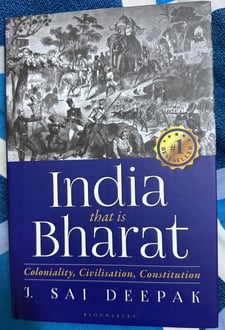
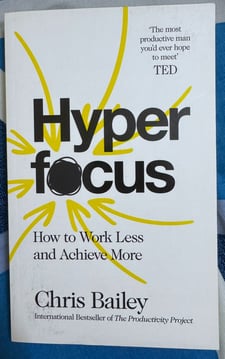
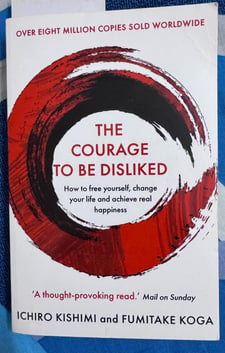



(1) Book Review: The Courage to Be Disliked
Authors: Ichiro Kishimi & Fumitake Koga
Breaking Free from External Validation
Most people live their lives in pursuit of approval—chasing validation from family, friends, society, and even strangers. The Courage to Be Disliked takes a radical stance: happiness is not about being liked, but about having the courage to live authentically, independent of others' opinions.
This book, based on Alfred Adler’s psychological theories, challenges deep-seated beliefs about self-worth, relationships, and personal freedom. Written as a dialogue between a philosopher and a young man, it distills Adlerian philosophy into thought-provoking conversations that shake conventional wisdom.
Key Takeaways: Redefining Happiness & Freedom
🔹 Separation of Tasks
One of the book’s most profound ideas is not carrying burdens that aren’t yours. Many people waste energy trying to please others or control how they perceive us. The reality? Others’ opinions are their task, not yours.
🔹 The Past Does Not Define You
Unlike Freudian psychology, which attributes behavior to past trauma, Adler’s philosophy states: You are not shaped by your past, but by the meaning you assign to it. Your past doesn’t dictate your future—only your choices do.
🔹 Interpersonal Relationships as a Source of Struggle
The book argues that all problems are interpersonal problems. We suffer because we seek approval, fear rejection, and compare ourselves to others. The solution? Live for yourself, not for external validation.
🔹 Happiness is Found in Contribution
True fulfillment doesn’t come from status, success, or praise—it comes from being useful to others. The more you focus on contribution over recognition, the freer you become.
How This Resonates with My Journey
For years, I have observed how societal expectations dictate people’s decisions. In career choices, relationships, and even daily behavior, we unconsciously act to be liked, rather than to be true to ourselves.
This book aligns deeply with my evolving philosophy:
✅ True success isn’t about winning external approval, but internal alignment.
✅ Growth requires shedding the fear of judgment.
✅ Detachment from others’ opinions leads to personal liberation.
Final Verdict: A Book That Challenges & Liberates
The Courage to Be Disliked is not an easy book to accept—it forces you to confront your fears, conditioning, and social dependencies. But for those willing to unlearn and rethink their beliefs, it is one of the most powerful, transformative reads.
📖 Who Should Read It?
✔️ Anyone struggling with self-doubt and approval-seeking.
✔️ Leaders and professionals who want to make independent, confident decisions.
✔️ Those seeking a philosophical yet practical approach to self-liberation.
💡 Key Reflection:
"Do you have the courage to live life on your terms, even if it means being disliked?"
This book makes you ask—and answer—that question.
(2) Book Review: Hyperfocus
Author: Chris Bailey
The Ultimate Guide to Managing Attention in a Distracted World
In a world where busyness is mistaken for productivity, Hyperfocus presents a counterintuitive yet powerful truth—we don’t need to do more; we need to focus better. Chris Bailey, a productivity expert, unpacks how attention is the most valuable resource we have and how managing it effectively can amplify creativity, efficiency, and fulfillment.
The book introduces two mental states—Hyperfocus and Scatterfocus—and explains how balancing both can help us work less while achieving more meaningful results.
Key Takeaways: Attention is Everything
🔹 Hyperfocus: The Deep Work Mode
Our best work happens when we sustain deep concentration on a single task.
Distractions kill efficiency—multitasking is a myth.
How to enter Hyperfocus: Limit inputs, create an intention, and set boundaries.
🔹 Scatterfocus: The Creativity Mode
Our best ideas don’t come when we’re working—they come when our mind wanders.
Bailey argues that deliberate mind-wandering is crucial for problem-solving.
How to tap into Scatterfocus: Take breaks, embrace boredom, and step away from screens.
🔹 Productivity Isn’t About Time—It’s About Attention
Time management is useless if our attention is fragmented.
Instead of scheduling tasks, we should schedule focus.
How This Resonates with My Journey
As someone who values depth over distraction, this book reinforces many of the principles I’ve come to believe in:
✅ True productivity isn’t about long hours but deep, undistracted work.
✅ Our best ideas come when we step back, not when we push harder.
✅ Multitasking is a trap—doing less with more focus leads to real progress.
In a world where notifications, meetings, and social media fight for our attention, Hyperfocus is a must-read for anyone looking to reclaim their mental clarity.
Final Verdict: A Game-Changer for Deep Work
📖 Who Should Read It?
✔️ Anyone struggling with distractions and mental fatigue.
✔️ Professionals and entrepreneurs seeking peak performance.
✔️ Creative thinkers who want to balance deep work with idea generation.
💡 Key Reflection:
"What if success isn’t about doing more, but about focusing better?"
This book makes you rethink not just how you work, but how you live
(3)Book Review: India That Is Bharat
Author: J. Sai Deepak
Decolonizing the Indian Mind: A Civilizational Perspective
At the heart of India's identity crisis lies a battle of narratives—the conflict between its ancient civilizational roots and the colonial frameworks that continue to shape its institutions, laws, and self-perception. India That Is Bharat by J. Sai Deepak is not just a book; it is a legal, historical, and philosophical inquiry into how coloniality still governs modern India.
The book challenges Eurocentric interpretations of Indian civilization and provides a rigorous deconstruction of how concepts like secularism, humanism, and toleration were weaponized against the Indic worldview. Sai Deepak presents "decoloniality" not as an intellectual exercise but as a civilizational necessity.
Key Takeaways: Understanding Bharat Beyond Coloniality
🔹 Coloniality is Not Just Political—It’s Psychological
Independence in 1947 was political, but intellectual, legal, and cultural colonization persists.
The book examines how British laws, educational policies, and social reforms systematically dismantled the indigenous Indic consciousness.
🔹 The Myth of Universalism: How Western Constructs Were Imposed
Ideas like toleration, secularism, and humanism are not neutral—they were designed within Christian political theology.
The book explains how these concepts were used to delegitimize the Indic worldview and enforce Western hegemony.
🔹 Decoloniality: A Necessary Civilizational Imperative
India That Is Bharat argues that true self-realization requires reclaiming Bharatiya consciousness.
It advocates for re-examining Indian law, education, and governance through an indigenous lens rather than Western validation.
How This Resonates with My Perspective
As someone who values history, governance, and cultural identity, this book aligns with my belief that modern India needs to reassess its trajectory through its own civilizational framework.
✅ Colonial hangovers are deeply embedded in our legal and policy structures.
✅ Reclaiming Bharat is not about nostalgia—it’s about acknowledging a deeper truth.
✅ A country must define itself on its own terms, not through borrowed ideologies.
This book is a wake-up call for Indians who want to understand the philosophical and legal foundations of their nation. It challenges blind acceptance of Western constructs and urges a serious engagement with Indic knowledge systems.
Final Verdict: A Must-Read for Civilizational Thinkers
📖 Who Should Read It?
✔️ Those interested in Indian history, law, and constitutional philosophy.
✔️ Thinkers, policymakers, and students questioning Western narratives of Indian civilization.
✔️ Anyone who believes in cultural self-respect and civilizational confidence.
💡 Key Reflection:
"Is India truly independent, or are we still governed by colonial frameworks?"
This book makes you question, analyze, and most importantly, reclaim your identity.
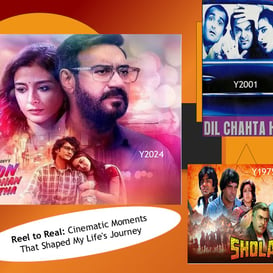
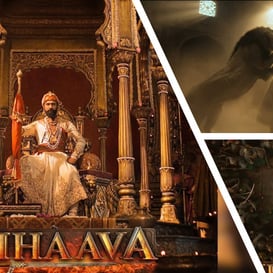
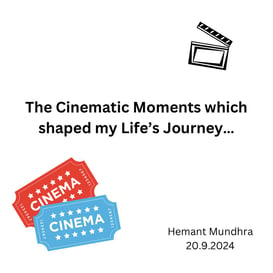
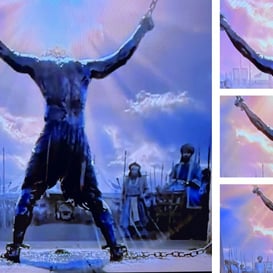
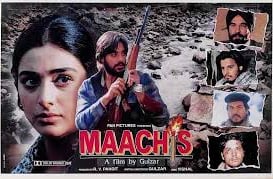
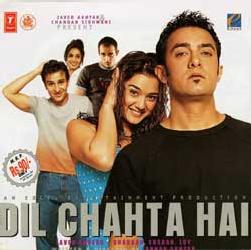
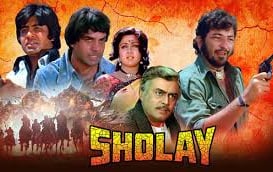
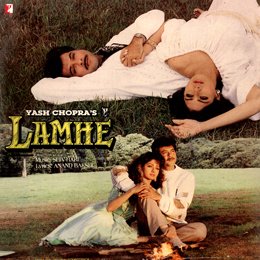
Movies
Chhaava, The Chhatrapati Sambhaji Maharaj: A Story of Unyielding Courage and the Price of Trust
Some lives are lived for legacy. Some deaths are celebrated as triumphs. Chhaava is not just a historical film—it is a lesson in resilience, strategy, and the price of betrayal. It is the tale of Chhatrapati Sambhaji Maharaj, a warrior who lived and died for Swarajya, embodying the spirit of unrelenting defiance.
Celebrating Death, Defying Defeat
In a world where fear of death shackles men, Chhaava glorifies the ultimate sacrifice. Sambhaji Maharaj’s death was not an end; it was an assertion of his undying will. The film captures how, in his presence, even the mightiest enemies felt the tremors of uncertainty in their own camps. He didn’t just fight battles—he made sure that the thought of him kept his foes restless in their own fortresses.
Swarajya in Every Breath
Chhatrapati Sambhaji Maharaj was not a king by inheritance alone; he was the embodiment of Swarajya in every fiber of his being. His desire for an independent Maratha rule was not a passing ambition—it was a fire that burned within him, a force that made him unshakable. The film powerfully conveys this, portraying a man whose every move, every war cry, was rooted in an unwavering commitment to his people’s sovereignty.
The Unforgivable Sin: Betrayal
Perhaps the most piercing lesson in Chhaava is not just about bravery but about trust. Chhatrapati Sambhaji Maharaj knew that an enemy within is more dangerous than an enemy outside. And yet, history tells us that misplaced trust in insiders has often led to the downfall of the greatest warriors. The film serves as a stark reminder—those who betray once should never be trusted again. A second chance to a traitor is an open invitation to another stab in the back.
The Mistake at Baharampur: A Moment That Could Have Changed History
One of the most strategic turning points in Chhaava is the Baharampur campaign. The film brilliantly captures the moment when Chhatrapati Sambhaji Maharaj had Aurangzeb on the edge—an uncalled-for challenge that shook the Mughal emperor. And yet, the restraint at that moment cost a crucial advantage. Had Sambhaji pushed forward, history could have witnessed a different outcome. This scene is not just a moment in a film; it is a lesson in seizing the right moment without hesitation.
My Personal Take: Living the Spirit of Sambhaji
Watching Chhaava is not just an experience—it is a call to action. Sambhaji Maharaj’s life offers lessons that resonate beyond history and cinema.
Pride in Identity and Religion – Chhaava reaffirms that pride in one’s roots is not arrogance but strength. If you do not stand tall for your faith and identity, history will bend you into submission.
Strength to Withstand Any Cruelty – To uphold what is right, one must be physically and mentally unbreakable. The torture Sambhaji endured is a testament that the body must be built strong enough to bear the harshest adversities without surrendering.
Agility Like a Squirrel (or a Cheetah?) – Strength alone does not win wars; agility and strategy do. Like a squirrel swiftly maneuvering through the battlefield of branches, or a cheetah striking with precision, one must be fast, unpredictable, and untouchable.
A Name That Commands Respect and Fear – Chhaava is a reminder that a warrior’s name should echo beyond his lifetime. Your name should be a source of pride for your people and a cause of fear for your enemies. It is not about being liked—it is about being remembered.
Chhaava is more than just a film; it is a blueprint for those who wish to live with unwavering conviction, unyielding courage, and an untarnished legacy.
My Heroines and The Heroine
Friday, March 12, 2010
First thing I learned as a part of my formal education was 'A B C D...K.... URS.....YZ'. I was made to remember these letters of alphabets by associating them with various nouns. A for apple, B for Ball, C for cat, D for dog,.....K for kite....., U for umbrella, R for rat, S for sun...z for zebra.
Then when I grew up, I was made to relearn again these, not the alphabets but the nouns associated with it. A for alpha, B for beta, C for charlie, D for delta.... K for kangaroo..... U for uniform, R for romeo, S for sierra,.... Y for yankie, Z for zylus. This was to comply with acceptable convention while spelling out names letters.
Today I am going to put in public domain my very own ABCD list of heroines and out of these one stands out in terms of current choice. Why she stands out? I will also let you know in this note only.
A for Amrita Singh [for being so manly]
B for Bipasha [being dusky beauty]
C for Catherine zeta Jones [for being with Dustin Hoffman]
D for Dimple Kapadia [Ageless Attractive]
E for Esha deol [as a consolation to Hema Malini for 'H' being taken up by Helen]
F for Fareeda Jalal [ remember that Rajesh Khanna heroine in the song 'Na na na.. baagon mein bahar.]
G for Genelene D'souza
H for Helen [for fully self expressed while dancing.Mehbooba..mehbboba in Sholay to Mohabbatein]
I for I(e)sha Koppikar [for her lustful scenes in 'Right ya Wrong' movie]
J for Julia Roberts [just for Pretty Woman]
K for Konkona Sen Sharma [Oh just so natural on screen] (replacing Katerina and Kareena)
L for Lara Dutta [glimpse of Rajasthani-South Indian look]
M for Madhuri Dixit Nane [No other choice but to accept as India loves 1-2-3 girl]
N for Nutan [ for cheek bone structure]
O for oomphs
P for Priyanka Chopra [those sensuous lips]
Q for queries
R for Raveena Tandon [natural beauty even off screen too]
S for Sandra Bullock [grace with feisty perosna. See 'The Blind Side' movie to know it]
T for Tanushree [just because she is from Kolkata]
U for Urmila Matondkar [ Rangeela effect still persists]
V for Vaijayantimala
W for Waheeda Rahman [ Guide and Lamhe for me]
X for All those unkown blue film movies heroines
Z for Zeenat Aman [As shown by Firoz Khan in Qurbaani and Raj Kapoor in Satyam Shivam Sundaram]
My favourite right now is 'K' for Knonkona Sen-Sharma. I just came back after seeing her in 'Right Ya Wrong'. Fabulous screen presence and so natural in acting. She does her best with Irrfan Kahn being around. Remember her with him in Life In Metro, Yun hota to kya hota, Aaja Nachle,Dil Kabbadi, Athiti tum kab jaaonge and currently Right Ya Wrong.
My influence of KKSS got more profound with 'Wake Up Sid' and 'Luck by Chance'. In 'Wake Up Sid' movie she carried it beautifully all along (each & every scene) allowing Ranbir Kapoor to be himself (what more a budding actor can ask!). In 'Luck by Chance', in the last scene, she just delivers a puch line to establish her thumping presence in the movie and summarising the character of Farhan Akhtar.
